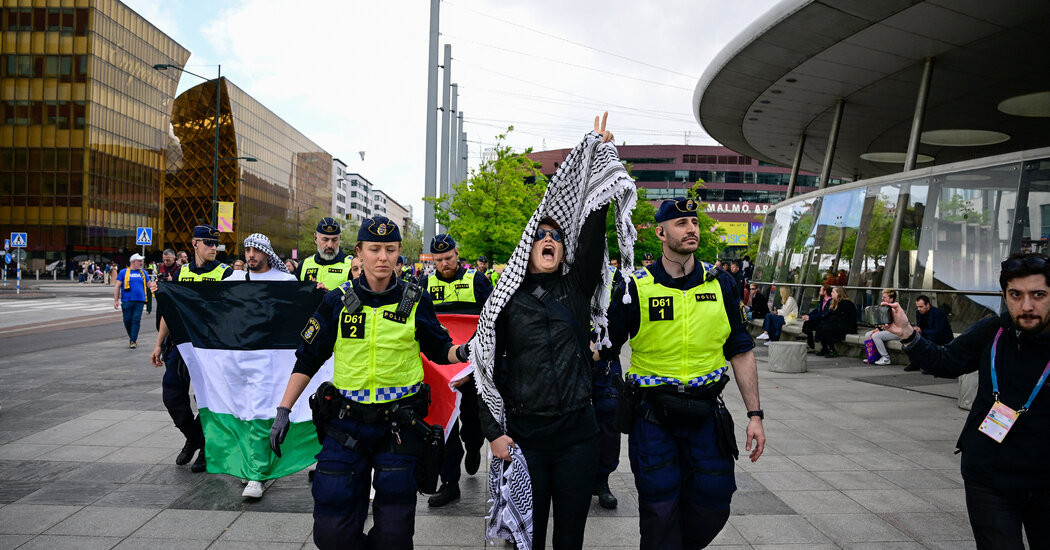

Institutions meant to promote civility, from soccer to song, have come under severe stress from rising antisemitism and anti-immigrant politics.
The various institutions of postwar Europe were intended to keep the peace, bring warring peoples together and build a sense of continental attachment and even loyalty. From the growth of the European Union itself to other, softer organizations, dealing with culture or sports, the hope has always been to keep national passions within safe, larger limits.
But growing antisemitism, increased migration and more extremist, anti-immigrant parties have led to backlash and divisions rather than comity. The long war in Gaza has only exacerbated these conflicts and their intensity, especially among young Muslims and others who feel outraged by Israeli bombings and by the tens of thousands of deaths in Gaza, a large proportion of them women and children.
Those tensions were on full display in the recent violence surrounding a soccer match between an Israeli and a Dutch team in Amsterdam, where the authorities are investigating what they call antisemitic attacks on Israeli fans, as well as incendiary actions by both sides. Amsterdam is far from the only example of the divisions in Europe over the Gaza war and of the challenges they present to European governments.
The normally amusing Eurovision Song Contest, which was held this year in Malmo, Sweden, a city with a significant Muslim population, was marred by pro-Palestinian protests against Eden Golan, a contestant from Israel, which participates as a full member.
The original lyrics to her song, “October Rain,” in commemoration of the 1,200 Israelis who died from the Hamas-led attack on Oct. 7, which prompted Israel’s response in Gaza, were rejected by organizers for their political nature, so were altered to be less specific. Her performance was met with booing and jeering from some in the audience, but she did receive a wave of votes from online spectators, pushing her to fifth place.
It was hardly the demonstration of togetherness in art and silliness that organizers have always intended.